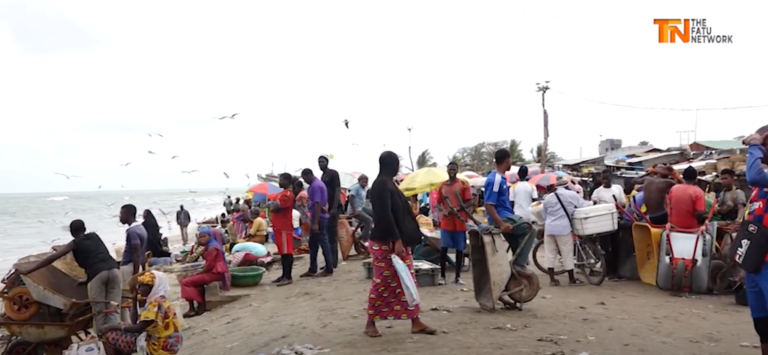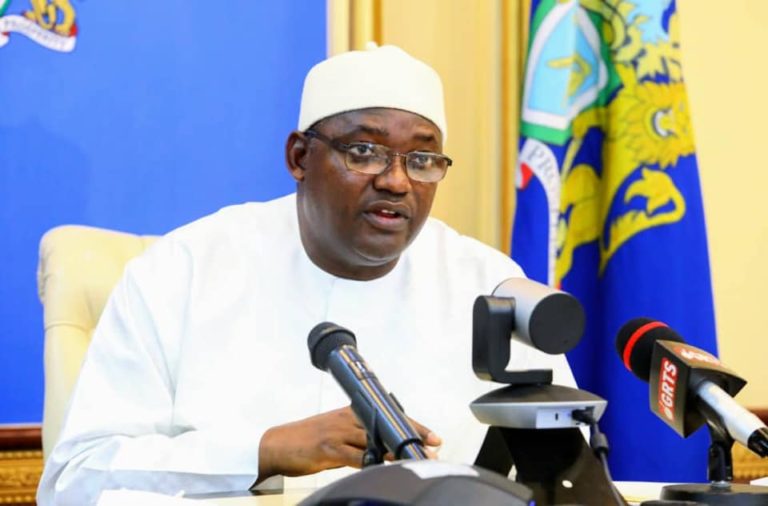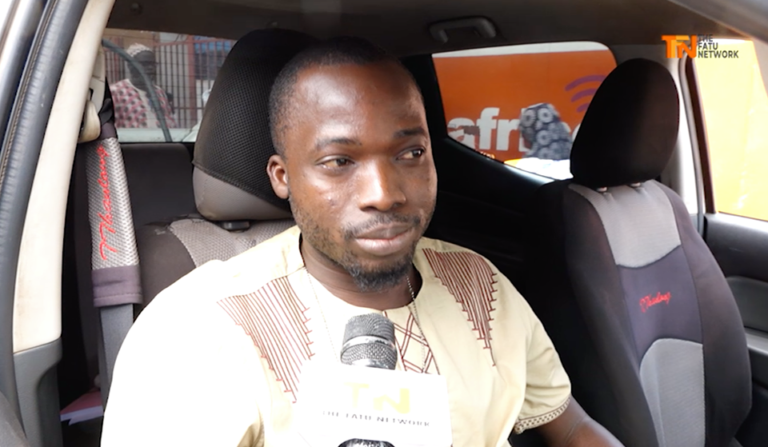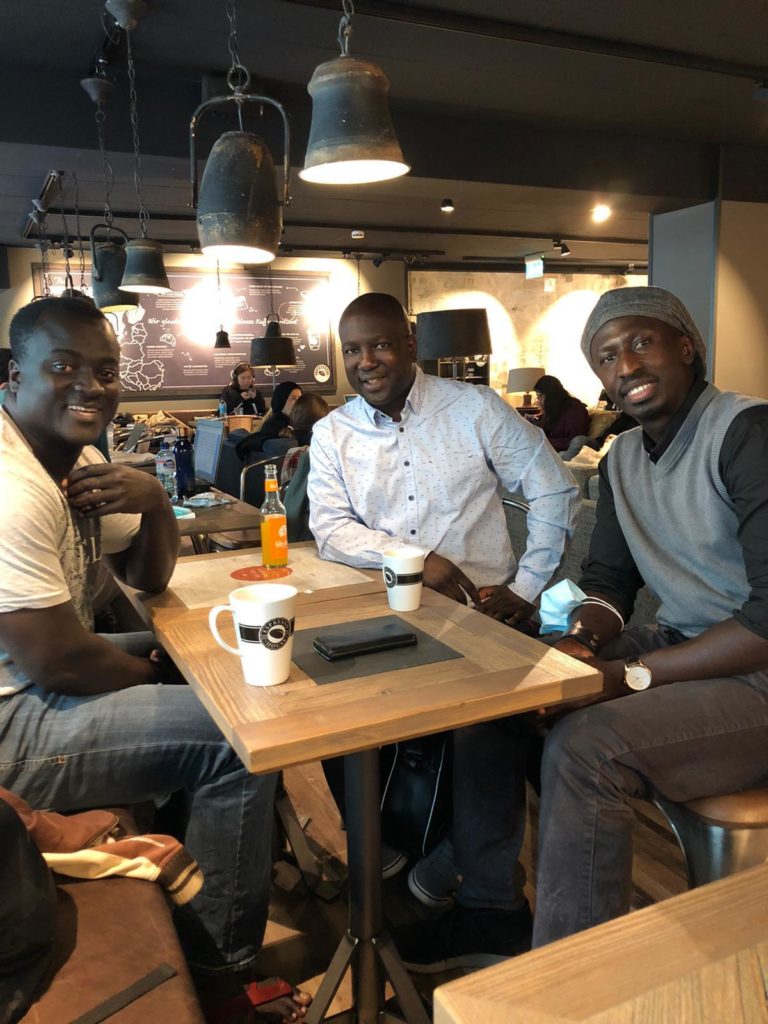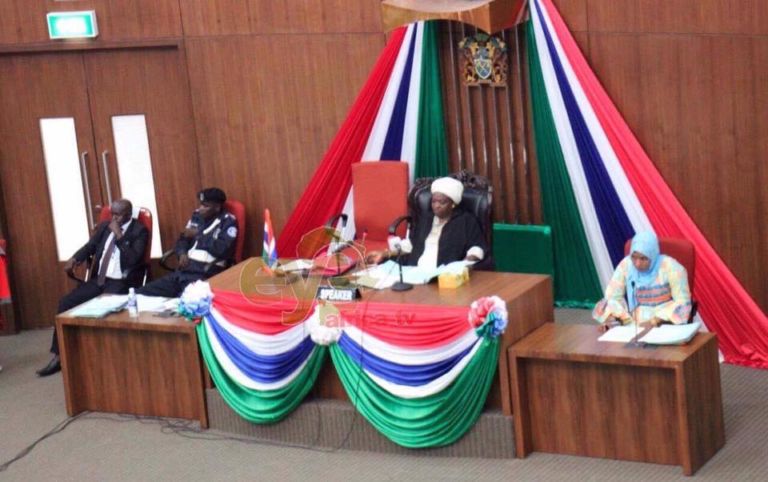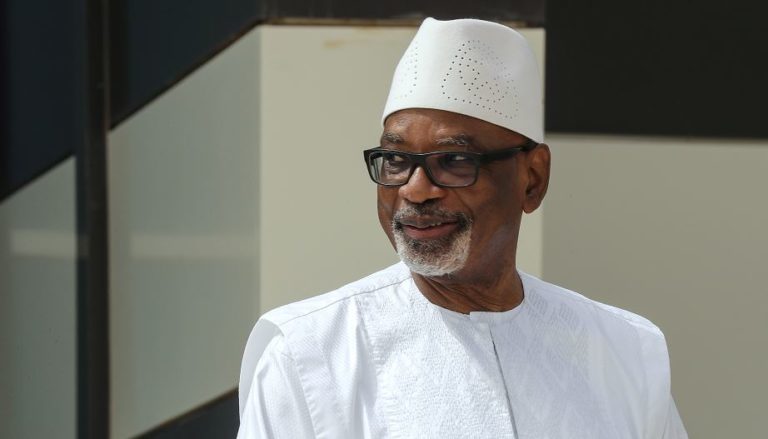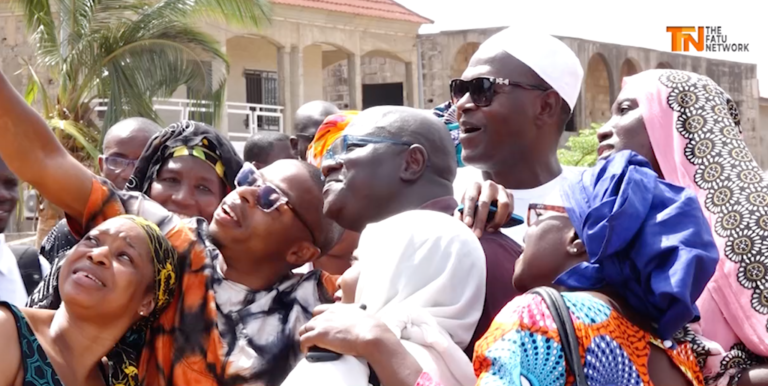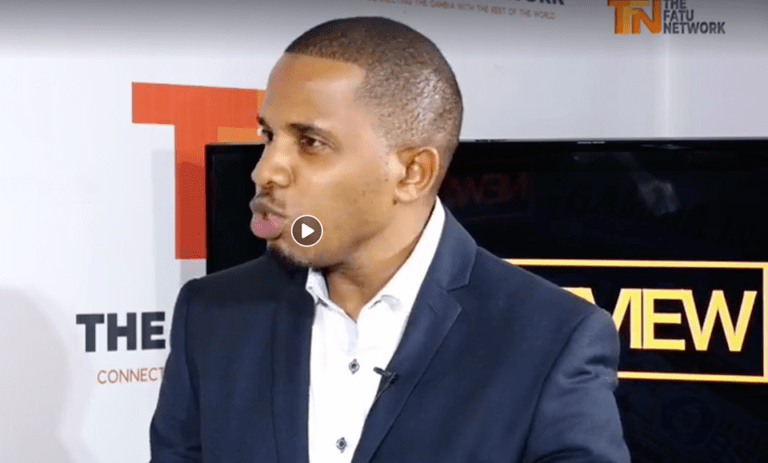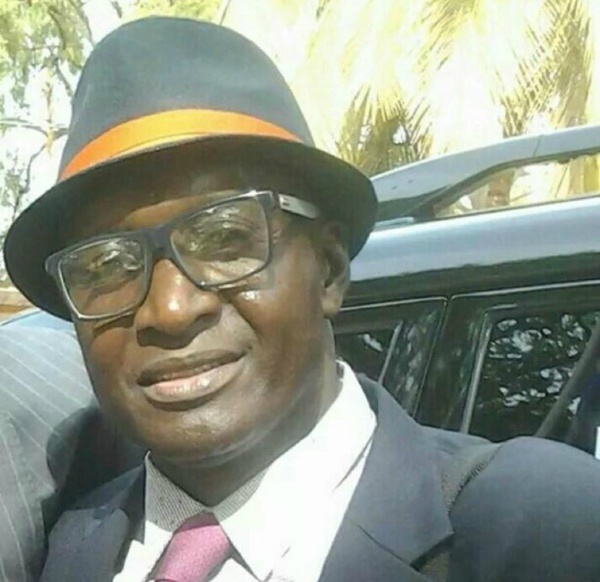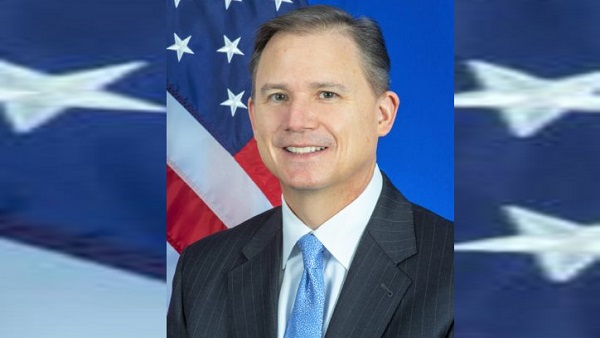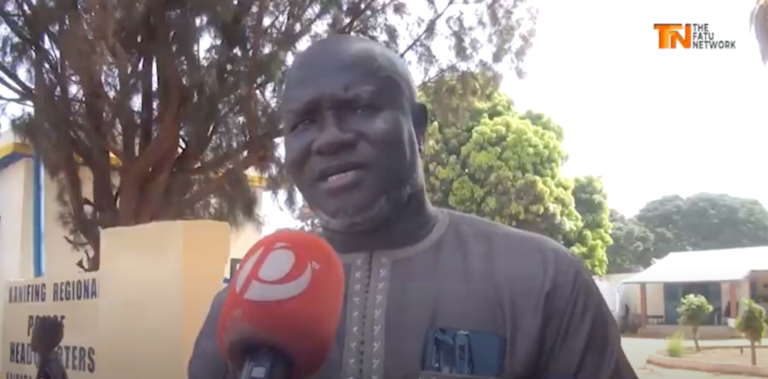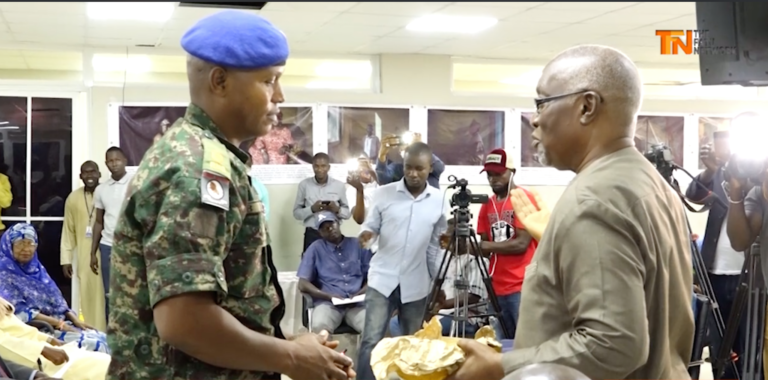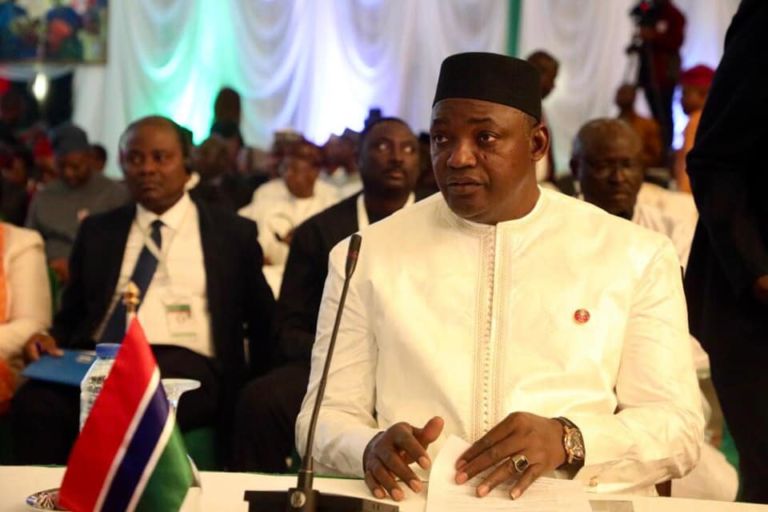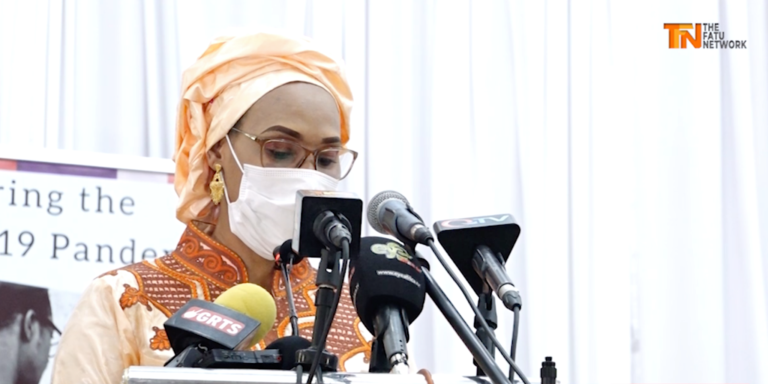Breaking: Relentless President Barrow declares new state of emergency
President Adama Barrow has declared a fresh state of public emergency throughout the country in a bid to stop a spread of coronavirus.
State House said: “In exercise of the powers conferred on him by section 34(6) of the 1997 Constitution, His Excellency, Adama Barrow, President of the Republic of The Gambia has declared a State of Public Emergency in the whole country. The declaration shall last for a period of seven days, pursuant to section 34(2) with effect from 8th July 2020.
“The public is reminded that the COVID -19 Emergency Regulations issued under the Emergency Powers Act shall continue to apply during the period of the State of Public Emergency.
“Furthermore, the public is advised to take all precautionary measures to protect themselves and curb the spread of COVID-19, while the experts continue to monitor and assess the situation.”
Alhagie Jawara: The lawmaker plotting revenge against UDP
UDP MPs now have a mountain to climb after MPs of nearly all the political parties represented at the national assembly on Monday threw their weight behind a bill that seeks to accord elected local government officials greater freedom and independence.
UDP have since April been trying to push Brikama Area Council Chairman Sheriffo Sonko out the door after he allegedly strayed from the ’cause’ of the party.
UDP West Coast regional committee had brought a complaint before the party’s national executive that Mr Sonko was being oblivious to the activities of the party. They recommended that he be sacked amid huge suspicion he was building love relations with President Adama Barrow – an adversary.
The current local government act says an elected local government official shall cease to be an official of a local government council if his party sacks him. UDP had this at the back of their mind when sacking Mr Sonko.
But the initial firing of Mr Sonko in April misfired as the UDP admitted ‘errors’ were made amid Mr Sonko threatening to take the party to court. The party then retreated only to return with full force again. And as the battle reaches feverish point, a familiar man emerged.
Alhagie Jawara has his own history with UDP. He was a member of the party. In fact he has UDP to thank for being in parliament today.
Yet, he fell out with the party after he alongside seven other MPs allegedly behaved in ways that ran counter to UDP values.
He was then sacked but managed to remain in parliament following the cancelling of the piece of law similar to the one that affects elected officials of councils.
Mr Jawara has now cobbled a private member’s bill to amend the local government act to ensure what is certainly Sheriffo’s fate would not happen to any elected local government official, in future. UDP MPs have taken it personally because of its timing.
If he succeeds, future elected local government officials can do whatever they want without the dread of automatically losing their jobs simpy because their party sacked them.
And UDP will be left scratching their heads taking into account the amount of elected local government officials the party has. For Jawara, some form of victory and revenge there.
The writer, Lamin Njie, is the editor in chief of The Fatu Network. He has edited The Standard and The Voice.
To all Gambians I ask: Why the degenerative ethnic politics?
If you hear the names Sheriff Touray and Pa Amadou Jobe, you might have already subconsciously categorize them to a particular ethnolinguistic belonging. Rightly or wrongly, it will be immaterial and you are soon about to find out why.
I had a conversation with these two gentlemen on how and why our social, political and economic fabric has and continues to degenerate to a level that has the potential to give birth to a Rwandan type genocide if we don’t collectively and decisively act. I am a convinced African republican, meaning I value nationhood that ultimately should yield power to an African continental government. This conviction is above all other considerations. The two mentioned gentlemen, probably even more than me, have placed their premiums on the cohesiveness of our country above their individual “ethnicities”.
I placed the word ethnicities in quotation marks because for them, the beautiful manifestations of Gambian languages and cultures should not be primary or even secondary factors to mark our identities. For them, what binds us as Gambians and Africans for that matter, is our common struggle for an equitable society firmly based on the ethos of justice and prosperity.
Between sips of coffee, I listened with all the attention I could muster as they took a plunge into the post-independence ethnic diversity of everything Gambian; from the composition of sports clubs in the 60s,70s and 80s, to how ethnic fluidity is to be found in families from Karton to Koina. Today, I know from my conversation with with Sheriff and Pa Amdou, ethnic and tribal considerations played no part in the battle for he independence and liberation of this country from colonialism and colonial exploitation. Essentially, a great sense of nationhood prevailed that made each and every Gambian to become a defender of justice and equal rights for everyone in the country irrespective of language, culture, trade or religious affiliation.
As the conversation progresses, I dumbfoundedly caught myself asking in my unconscious mind why and how has things taken a turn for the worst. Why and how is the renewed sense of ethnolinguistic belonging taking center stage in our national political discourse, both in the country and even amongst Gambians working and living abroad?
Perhaps there are more questions than answers at this particular moment. That however leaves us with one important matter at hand to be confronted head on. The complicity of many political party leaders in fermenting and fanning the tensions that all to well have come to dominate social media platforms since our supposed change from tyrannical rule to a semblance of a free society.
For the purpose of this opinion piece, I shall refrain from naming those political party leaders who has no policy messages, who has no messages on the importance of national cohesion to defeat the demons of corruption, who has no messages on how to end chronic poverty and our underdevelopment status. The vast majority of these political opportunists only guarantee to get to power or stay in power, is to breed hatred and ethnic animosity amongst Gambians. Sadly, it’s the same Gambians who have everything to loose should they begin to shed each other’s blood.
Those who first and foremost have put on the ethnic flames, undoubtedly, have either already planned their exits or have beforehand evacuated their immediate families to safer countries. This is what history has taught us.
According to Sheriff and Pa Amadou, these politicians are not even loyal to their ethnicities. Hi their intentions, acts and utterances are meant to play Gambian people against each other so as to concentrate power and privileges in their hands and their immediate families. That’s how and why our country has degenerated and is degenerating further in the political, cultural, social and economic spheres. It will be hypocritical of me not to agree with them.
For today, I am lucky to meet two Gambian men of outstanding convictions, who has given me hope that our ethnicities (languages and cultural practices) should be a source of unity worth celebrating and a source of resolution to continue the battle for our common good. The opposite will be a betrayal to generations gone and generations yet unborn.
Yours in the service of The Gambia and Africa, I remain.
The writer, Da One, is based in Germany
Breaking news: Speaker suspends sitting as huge commotion breaks out at the House
A huge bickering has broken out at the national assembly prompting the speaker to suspend sitting.
Members of the House have all morning been rowing over whether to debate a private member’s bill that seeks to amend a part of the Local Government Act which says an elected local government official shall cease to be a member of a local government council if his party sacks him.
The bill, sponsored by Lower Baddibu NAM Alhagie Jawara, is in the context of the Sheriffo Sonko-UDP saga.
More follows…
Mali president Keita meets leader of protest movement
By CGTN Africa
Mali’s President Ibrahim Boubacar Keita has met with the leader of a protest movement that has seen thousands of Malians take to the streets.
The Malian presidency said on Sunday the country’s leader met with Mahmoud Dicko, an imam and leading figure of the so-called June 5 movement, in the capital Bamako on Saturday.
The meeting was the first between the two since demonstrations erupted in June.
The protesters have channeled deep-seated frustration over jihadist violence and inter-ethnic conflict that had claimed thousands of lives since 2012 and forced hundreds of thousands to flee their homes.
“We talked about everything that concerns this crisis and the country in general. I think that with the will of everyone and of all the parties concerned, we will, God willing, find the solution,” Dicko said in a video posted on the Malian presidency’s twitter account.
“My role as an imam, as I have said, obliges me to be someone who always considers peace as being essential: peace in our country, the sub-region and in the world.”
President Keita also met with representatives of other political parties with the aim of “easing the political situation”, the presidency said.
The opposition coalition of religious leaders, politicians and civil society figures dissolution of parliament and the formation of a transitional government whose prime minister would be appointed by the movement and could not be removed by the president.
TONY F MENDY – COMMENT: What Mr Madi Jobarteh Represents!
By Tony F Mendy
The assumption of power in the continent since the dawn of independence (with lessons to be best drawn from home) created a new phenomenon of struggle for freedom and justice and even the professed New Gambia is not spared. On the credit side, and maybe rather unconsciously or without a choice, the government of The Gambia has without much effort, laid the environment for freedom of expression which is ironically under review today. The review establishes the debit side of the deliberate attempts to undo the credits so recorded in the name of the same government. Not only is this ironically discordant but inflicts upon the citizenry a sense of betrayal to have “The voice of conscience” in the New Gambia, in the person of Mr. Madi Jobarteh arrested and charged for expressing his opinion in a purely human rights matter.
It is no exaggeration to say that Mr Madi Jobarteh is to some extent either by his noble ideas or consistence conduct, the best thing that happens to the democratization process in the so-called New Gambia. Within us, however, and across the political divide of the polite, we have manifested the ability to hate even men of high intellectual aptitude and integrity regardless of our own fallible nature. So, I will not in this piece in any way whatsoever, address some personal hatred that some people strangely, for whatever reason, have clung on against Mr. Jobarteh, because our conversation as a nation should at all instances be guided by ideas and it is inherent for those who wish to share these ideas to do so without personal sentiments.
It is indeed unprecedented and foolish action for a state, after all it has lost and invested in defense of democracy to, in rather a disgraceful and weak manner (in a case it has already lost before it commence) institute a legal trial against a citizen for expressing an opinion clouded with nought but the truth.
In spite of this manifestation of “dictatorial tendencies” and brick-bat by the Executive, the real problem in The Gambia is the high level of political ignorance or immaturity on one hand and opportunism” on the other. Not strangely enough, the latter which is caused by the failure of the education system has kept the masses of our people in the dark with little or no understanding of the power in their possession neither how to creatively use it. While the former (opportunism) is being practiced by few elites who, for example, understood the position of Mr Jorbateh in our society but chose to be deliberate and continue to tone it down with endless effort to silence noble men like him.
Evident that the majority of our population is kept in ignorance such that, they do not understand the basic dynamics of power and the potentials for the Executive, in such an environment to ‘uncreatively’ abuse it to the detriment of society and its people but for a few, we should not only direct our attention to holding the government accountable but also enlightening the masses of our people to understand the role of the ‘Madi Jobartehs’ in our society.
Mr Jobarteh’s understanding of politics, academic accomplishment, and sophistication in human rights matters and selfless character positions him as an asset to the nation. He is regardless of your opinion, not attracted by the economic or any rewards for his activities because he understands the pathetic graphic picture of our society and is continuously driven by the passion to change it.
He represents the voices of the masses of our people. Mr Jobarteh speaks, demands and questions to hold the powers that be to account not because it is rewarding to him, but he understands the necessity to and dares to represent those who are disadvantaged, don’t understand the worth of their voices, and the reason for the poor status of this country or how to change it.
Comparatively, Mr. Jobarteh is the contrast of any government. It is true that ‘all’ authorities (as a matter of generalization) love to cultivate the culture of or maintain the masses in ignorance, because it is politically gratifying for their continuous survival. Mr. Jobarteh doesn’t dwell upon such an exploitative political machinery. While our politicians revel in regal ostentation, monumental corruption and endless evil, Mr. Jobarteh educates and empowers the masses to stand against such ignoble acts. Consequently, one would understand why the state finds every reason to be discomforted by his activities! Evidently, it is his objectives that are right and relevant for the progress of this nation.
The Greek mythologies, have earlier accurately argued in descriptions of the ‘society’, that every society is composed of three idiots of which are the materialistic class or the bourgeoisie, who unjustly acquire wealth and ‘assume’ to isolate themselves from the society and matter that affect it. They do not care nor pay attention to the plight faced by the said society they are living in. So said the Greeks, the second category of idiots is the tribalists’ . Those who, for their weak intellectual capacity and general inability, do appeal to the sentiments and cultural diversity of cosmopolitan societies as a base to win favors from its section. The third class of idiots in this regard are the “citizens”. These are the people with rational thought and deep understanding of their responsibility as members of a society. They look into the greater good, uphold and respect the probity of the human being and contribute towards the general success of the society.
Of course, Mr Jobarteh belongs to the third category of idiots. He is a citizen and understands what it means to be a genuine member of any society. While I cannot realistically peek into his mind or prognosticate the future and see whether he will change or not, I have long comfortably assured myself that he is a noble citizen, a patriot, the type that the young should look up to if we mean change in our lives time and that of our makeshift society.
Mr Jorbateh represents the agenda of the much-needed re- liberation of the Gambian from the bankrupt system of governance and ceaseless exploitation of its people. He understands the cries of the woman gardener in the remotest hamlet of The Gambia who is not even spared from the exploitation. Thus, the continuous demand for genuine leadership. Most amazingly, he does not represent the much pathetic political groupings in this country.
Mr Jobarteh represents a liberated progressive mind and citizen, who values human life regardless of one’s political affiliation, sexual orientation, imaginary tribe or social stratification. He is as far as the embodiment of a genuine “citizen” is concern, one of the finest one could point to in The Gambia.
The past explains how we got here today, so I do not and no one (except those exploiters) should care when Madi’s fallible nature offends the establishment or the laws designed with the exact intent to suppress the voices of the oppressed! Consider it, for example, as the reactionary effects of the half a century troubled souls.
I know, I cannot amply or exhaustively demonstrate the value of Mr. Jobarteh for what he represents and I have no intention to either but the story is told of many a great man, who dared to be different in strange times in societies that are today considered as liberated and progressive. History is kind to them because they possessed the forethought and genuine intention to institute real change. At first, they were misunderstood only to be celebrated by posterity.
Mr Jobarteh has chosen that right path, that of the people’s fighters! So tell Mr Government, you cannot silence the People’s Fighter! He represents just but us! He is us and we are him! Oh yes I am Madi Jobarteh!
America on its 244th birthday: Dark skies, canceled parades, but also new hope
By Marc Fisher, Washington Post
As statues tumble and a frightening virus spreads through the land, far fewer splashes of color will burst onto the night skies across America on the Fourth of July. Instead of parades and picnics, the nation’s 244th birthday will be a muted celebration by people who are frustrated and strained, yet intriguingly, persistently hopeful about the future.
A triple whammy of deadly disease, wholesale economic paralysis and a searing reckoning with racial inequality has largely canceled the nation’s birthday bash. But despite depression-level unemployment and pervasive sadness, polling and interviews across the country reveal an enduring — even renewed — reservoir of optimism, a sense that despite the coronavirus and perhaps as a result of protests in big cities and small towns alike, the United States can still right itself.
Months of quarantine and the continuing anxiety of life under the threat of an uncontained virus has shrunk social circles, leaving many people lonely or bored. In Clear Lake, Iowa, where there would normally be a parade, a carnival and a grand fireworks display over the water, Rachel Wumkes will instead spend the day in her in-laws’ pontoon with her husband and their five children.
“I feel discombobulated right now because we should be doing everything and instead we’re just kind of doing nothing,” said Wumkes, who works for the town’s chamber of commerce. “There’s so many scary things right now. We’re all kind of melancholy this year, trying to put a smile on our faces.”
Americans’ pride in their country has dropped this year, especially among Republicans, according to the Gallup Poll. National pride declined to its lowest point in two decades of polling, as the portion of Americans saying they are “extremely” or “very proud” of their country fell from 92 percent in 2002, months after the 9/11 terrorist attacks, to 63 percent last month. The number was far lower for nonwhites: 24 percent.
On the Fourth, Chris Chappelear will leave Omaha, where the big parades and fireworks displays were scratched, and head over to Arlington, Neb., his grandparents’ tiny hometown 35 miles away, where the rocket’s red glare will give proof through the night that the flag is still there.
Despite all the country has gone through this year, he believes there remains something to celebrate.
“Everything feels really strained right now,” said Chappelear, who recently completed a term as chairman of the Nebraska Federation of Young Republicans. “But people are trying to make it work, and I think there will be meaningful change. I like the national conversation that the protests started. With social media, too many people only see what their own people think. But as a millennial, I think changing the guard, with new, fresh blood in leadership, would go a long way toward cooling down tempers.”
In the wake of nationwide protests against police violence, Americans have become somewhat more optimistic about the country’s future, though a plurality still say life will be worse for people in the next generations, according to a new Pew Research poll. Though 71 percent of Americans said they feel angry about the state of the country — and 66 percent are fearful — the survey found an uptick in optimism since last fall.
Overall, 25 percent of those polled said life will get better for Americans; among whites, that number held steady at 22 percent, but among blacks, the optimism number jumped from 17 percent last fall to 33 percent this month.
On most Fourths, Greg Carr makes his way to Independence Hall in Philadelphia to hear the annual reading of the Declaration of Independence. He always carries with him the text of Frederick Douglass’s 1852 speech, “What to the Slave is the Fourth of July?”
There’ll be no mass gathering this year, but Carr, chairman of the Afro-American studies department at Howard University in Washington, will nonetheless read the speech, which affirms Douglass’s admiration for the Founding Fathers’ “great principles of political freedom and of natural justice,” but concludes that “This Fourth of July is yours, not mine. You may rejoice, I must mourn.”
This year, Carr feels an unaccustomed “optimism coming from black folks who see the terms of the American myth being renegotiated in the streets.” He said the coronavirus epidemic “has laid bare the structural inequalities in this country, and the deaths from the virus triggered this general strike.”
The protests, Carr said, have been expressions not only of anger and frustration, but also of joy: “There’s dancing, there’s celebration — they’re celebrating victories that are about America and about human rights and the feeling that ‘I feel better outside than I did being stuck inside the house.’ ”
Carr will spend the day reading the speech and attending Zoom conferences critiquing the Fourth of July. His is not a celebration of America — “This is still the white man’s country,” he said — but rather a celebration that Americans are asserting their rights.
“What black people want is to be left alone,” Carr said. “Let us live.”
Figuring out exactly what the Fourth celebrates has been the work of nearly 2½ centuries, and especially in traumatic times, that effort can seem anything but unified.
In 1968, the Fourth arrived in a moment of deep national division. Riots burned through American cities, the assassinations of the Rev. Martin Luther King Jr. and Robert F. Kennedy remained fresh wounds to the national psyche, and 36 percent of Americans — including 48 percent of blacks — told pollsters that the United States was a “sick society.”
In that traumatic year, the Fourth featured demonstrations on the Mall highlighting “the plight of the poor,” and in Philadelphia, protesters opposing the U.S. involvement in Vietnam chanting, “End the war now!”
But in most American towns, the Fourth unfolded as it always had, a cheerful mélange of parades and fireworks, baseball games, fried chicken dinners and flags aflutter in a humid breeze. A Gallup Poll that summer found that most Americans did not consider their country “sick,” arguing that a small number of people were responsible for violence on the streets and that the country was no worse off than it had been in other eras.
That debate has ebbed and flowed for half a century.
“This year’s conflicts are the clash of two different, incompatible visions of America,” said John Fonte, a historian who is director of the Center for American Common Culture at the conservative Hudson Institute. “It’s systemic justice against systemic racism, the America of the American Revolution and the Constitution — the idea that we’ve had an advance of rights for more than two centuries — against the view that America was flawed from the beginning by slavery.
“We are reaching the climax of that debate, and it appears this year that we are moving away from the vision of an American legacy that needs to be transmitted, toward that vision of America as a country that needs to be radically transformed.”
Fonte has watched as statues have fallen and protests have blossomed, not only against Confederate generals and soldiers who were traitors to their country, but also against George Washington, Abraham Lincoln and Ulysses Grant.
The historian plans to celebrate the Fourth, but he has little expectation that Americans will reach any consensus on who we are and what we stand for. Fonte called the rejection of some of the nation’s most honored figures “overreach.”
“Most people in most countries want to love their country,” Fonte said. “They don’t want to think this is a terrible nation that has done terrible things for hundreds of years. But we’re going to have to choose. Something has to give.”
This year, many Americans seem to be leaning toward the protesters’ arguments, with large majorities of whites and nonwhites alike concluding that the killing of George Floyd in Minneapolis police custody reflected broad problems in how police treat black Americans, according to a Washington Post-Schar School poll conducted in June.
That consensus gives Chappelear, the Nebraska Young Republican, hope that “we’ll come through this crisis — battered and bruised and bloody, but we’ll come through it. The country is still divided, but I look at my generation and the attitudes are different: I like the idea of Black Lives Matter, even if not the organization that runs it. With climate change and gay rights, there’s a much larger acceptance among young conservatives, even here in Nebraska, than there is for older generations.”
But deep divisions remain, and the painful and largely unsuccessful struggle to limit the spread of the coronavirus has reflected rifts that stretch back generations. The debate over whether governments should require people to wear masks, for example, is a classic American faceoff between individual liberty and common good.
“It’s just a punch in the gut to see people around the world responding to the virus and we’re sitting here not doing what we know we could do,” said Spence Spencer, who has run the Fourth of July parade in the District’s Palisades neighborhood since 2002. This year’s parade was scrapped, replaced with a virtual parade online.
“We are broken but unbowed,” said Spencer, a former State Department official who runs a nonprofit organization that focuses on enhancing the rule of law in Iraq and other conflict zones. “Our country has taken so much on the chin this year, on so many levels.”
Spencer sees this spring’s protests as “a cause for hope, a reassertion that the American tradition of getting people to act on a matter of social justice is alive and well.” But the country’s handling of the virus is a less hopeful story, he said: “Right now, that’s a major failing. But I know we can turn a corner. That’s a core belief.”
Many Americans blame themselves, or at least each other, for the failure to restrain the spread of the virus as some other countries have.
More than twice as many people say the American public is doing a “bad job” dealing with the outbreak as say the public is doing a good job, according to a Monmouth University poll. Americans give their fellow citizens a worse grade than they give President Trump; 59 percent said the public is doing a “bad job” battling the virus, whereas 54 percent said Trump is handling the outbreak poorly.
Wumkes, the Iowa civic booster, compared the country’s predicament to a trying chapter of her own life. Three years ago, she lost her husband to cancer. She despaired about her future, alone with two small children. Now, remarried and in a blended family with her new husband’s three kids, her children ask, “Why can’t we go to the movies?” and “Why are we always at home?” But Wumkes sees a light she’d have found hard to imagine a few years ago.
“Life is not all rainbows and unicorns,” she said. “I pulled through that time, and we as a country can pull through, too. Maybe that’s a small-town Iowa fantasy, but I’m hopeful we can persevere.”
Despite the nationwide surge of worry and stress since the epidemic hit hard in March, more than 7 in 10 Americans told the Gallup Poll in mid-June that they experienced happiness and enjoyment through much of their day, a bump up in positive feelings since late March.
There’s good feeling aplenty in Medora, in North Dakota’s Badlands, this weekend. The parade is on. The fireworks, too. More than 128,000 Americans have died of covid-19, and 2.7 million nationwide have been diagnosed with the virus that causes the disease, but in this rural town, the 128 residents, augmented in summer by thousands of tourists visiting Theodore Roosevelt National Park, feel distant enough from the brunt of the virus to charge ahead with their celebrations.
Some people will wear masks, and Douglas Ellison keeps hand sanitizer on the counter at the bookstore and inn he runs. Whether people use it is up to them. “I see it as an individual choice,” he said.
His Fourth will be an optimistic one. His inn is mostly full of visitors, and his vision of America remains mostly unblemished by this year’s troubles.
“Out here, the tensions are not as strong as what we see on television,” said Ellison, who also is a former mayor of Medora. “From what I watch, I see almost a mass hysteria, with people pulling down statues left and right, sometimes without even knowing who the person really is. It’s great to have a national conversation, and there’s an underlying benefit to the unrest, so we can be more aware of people who have not had all the benefits of our country. But unfortunately, it often devolves into shouting and recriminations.”
Still, Ellison said, “the country will come together. My bookstore is history-oriented, and history teaches us that we will always continue to evolve. Every generation thinks their time is the worst it’s ever been. No, it’s been worse. All of this has been brewing since long before the president even ran for office. But the boil will simmer down. Time settles emotions. Things have a way of balancing and righting themselves. They always have.”
Marc Fisher, a senior editor, writes about most anything. He has been The Washington Post’s enterprise editor, local columnist and Berlin bureau chief, and he has covered politics, education, pop culture and much else in three decades on the Metro, Style, National and Foreign desks.
. But despite depression-level unemployment and pervasive sadness, polling and interviews across the country reveal an enduring — even renewed — reservoir of optimism, a sense that despite the coronavirus and perhaps as a result of protests in big cities and small towns alike, the United States can still right itself.
Months of quarantine and the continuing anxiety of life under the threat of an uncontained virus has shrunk social circles, leaving many people lonely or bored. In Clear Lake, Iowa, where there would normally be a parade, a carnival and a grand fireworks display over the water, Rachel Wumkes will instead spend the day in her in-laws’ pontoon with her husband and their five children.
“I feel discombobulated right now because we should be doing everything and instead we’re just kind of doing nothing,” said Wumkes, who works for the town’s chamber of commerce. “There’s so many scary things right now. We’re all kind of melancholy this year, trying to put a smile on our faces.”
Americans’ pride in their country has dropped this year, especially among Republicans, according to the Gallup Poll. National pride declined to its lowest point in two decades of polling, as the portion of Americans saying they are “extremely” or “very proud” of their country fell from 92 percent in 2002, months after the 9/11 terrorist attacks, to 63 percent last month. The number was far lower for nonwhites: 24 percent.
On the Fourth, Chris Chappelear will leave Omaha, where the big parades and fireworks displays were scratched, and head over to Arlington, Neb., his grandparents’ tiny hometown 35 miles away, where the rocket’s red glare will give proof through the night that the flag is still there.
Despite all the country has gone through this year, he believes there remains something to celebrate.
“Everything feels really strained right now,” said Chappelear, who recently completed a term as chairman of the Nebraska Federation of Young Republicans. “But people are trying to make it work, and I think there will be meaningful change. I like the national conversation that the protests started. With social media, too many people only see what their own people think. But as a millennial, I think changing the guard, with new, fresh blood in leadership, would go a long way toward cooling down tempers.”
In the wake of nationwide protests against police violence, Americans have become somewhat more optimistic about the country’s future, though a plurality still say life will be worse for people in the next generations, according to a new Pew Research poll. Though 71 percent of Americans said they feel angry about the state of the country — and 66 percent are fearful — the survey found an uptick in optimism since last fall.
Overall, 25 percent of those polled said life will get better for Americans; among whites, that number held steady at 22 percent, but among blacks, the optimism number jumped from 17 percent last fall to 33 percent this month.
On most Fourths, Greg Carr makes his way to Independence Hall in Philadelphia to hear the annual reading of the Declaration of Independence. He always carries with him the text of Frederick Douglass’s 1852 speech, “What to the Slave is the Fourth of July?”
There’ll be no mass gathering this year, but Carr, chairman of the Afro-American studies department at Howard University in Washington, will nonetheless read the speech, which affirms Douglass’s admiration for the Founding Fathers’ “great principles of political freedom and of natural justice,” but concludes that “This Fourth of July is yours, not mine. You may rejoice, I must mourn.”
This year, Carr feels an unaccustomed “optimism coming from black folks who see the terms of the American myth being renegotiated in the streets.” He said the coronavirus epidemic “has laid bare the structural inequalities in this country, and the deaths from the virus triggered this general strike.”
The protests, Carr said, have been expressions not only of anger and frustration, but also of joy: “There’s dancing, there’s celebration — they’re celebrating victories that are about America and about human rights and the feeling that ‘I feel better outside than I did being stuck inside the house.’ ”
Carr will spend the day reading the speech and attending Zoom conferences critiquing the Fourth of July. His is not a celebration of America — “This is still the white man’s country,” he said — but rather a celebration that Americans are asserting their rights.
“What black people want is to be left alone,” Carr said. “Let us live.”
Figuring out exactly what the Fourth celebrates has been the work of nearly 2½ centuries, and especially in traumatic times, that effort can seem anything but unified.
In 1968, the Fourth arrived in a moment of deep national division. Riots burned through American cities, the assassinations of the Rev. Martin Luther King Jr. and Robert F. Kennedy remained fresh wounds to the national psyche, and 36 percent of Americans — including 48 percent of blacks — told pollsters that the United States was a “sick society.”
In that traumatic year, the Fourth featured demonstrations on the Mall highlighting “the plight of the poor,” and in Philadelphia, protesters opposing the U.S. involvement in Vietnam chanting, “End the war now!”
But in most American towns, the Fourth unfolded as it always had, a cheerful mélange of parades and fireworks, baseball games, fried chicken dinners and flags aflutter in a humid breeze. A Gallup Poll that summer found that most Americans did not consider their country “sick,” arguing that a small number of people were responsible for violence on the streets and that the country was no worse off than it had been in other eras.
That debate has ebbed and flowed for half a century.
“This year’s conflicts are the clash of two different, incompatible visions of America,” said John Fonte, a historian who is director of the Center for American Common Culture at the conservative Hudson Institute. “It’s systemic justice against systemic racism, the America of the American Revolution and the Constitution — the idea that we’ve had an advance of rights for more than two centuries — against the view that America was flawed from the beginning by slavery.
“We are reaching the climax of that debate, and it appears this year that we are moving away from the vision of an American legacy that needs to be transmitted, toward that vision of America as a country that needs to be radically transformed.”
Fonte has watched as statues have fallen and protests have blossomed, not only against Confederate generals and soldiers who were traitors to their country, but also against George Washington, Abraham Lincoln and Ulysses Grant.
The historian plans to celebrate the Fourth, but he has little expectation that Americans will reach any consensus on who we are and what we stand for. Fonte called the rejection of some of the nation’s most honored figures “overreach.”
“Most people in most countries want to love their country,” Fonte said. “They don’t want to think this is a terrible nation that has done terrible things for hundreds of years. But we’re going to have to choose. Something has to give.”
This year, many Americans seem to be leaning toward the protesters’ arguments, with large majorities of whites and nonwhites alike concluding that the killing of George Floyd in Minneapolis police custody reflected broad problems in how police treat black Americans, according to a Washington Post-Schar School poll conducted in June.
That consensus gives Chappelear, the Nebraska Young Republican, hope that “we’ll come through this crisis — battered and bruised and bloody, but we’ll come through it. The country is still divided, but I look at my generation and the attitudes are different: I like the idea of Black Lives Matter, even if not the organization that runs it. With climate change and gay rights, there’s a much larger acceptance among young conservatives, even here in Nebraska, than there is for older generations.”
But deep divisions remain, and the painful and largely unsuccessful struggle to limit the spread of the coronavirus has reflected rifts that stretch back generations. The debate over whether governments should require people to wear masks, for example, is a classic American faceoff between individual liberty and common good.
“It’s just a punch in the gut to see people around the world responding to the virus and we’re sitting here not doing what we know we could do,” said Spence Spencer, who has run the Fourth of July parade in the District’s Palisades neighborhood since 2002. This year’s parade was scrapped, replaced with a virtual parade online.
“We are broken but unbowed,” said Spencer, a former State Department official who runs a nonprofit organization that focuses on enhancing the rule of law in Iraq and other conflict zones. “Our country has taken so much on the chin this year, on so many levels.”
Spencer sees this spring’s protests as “a cause for hope, a reassertion that the American tradition of getting people to act on a matter of social justice is alive and well.” But the country’s handling of the virus is a less hopeful story, he said: “Right now, that’s a major failing. But I know we can turn a corner. That’s a core belief.”
Many Americans blame themselves, or at least each other, for the failure to restrain the spread of the virus as some other countries have.
More than twice as many people say the American public is doing a “bad job” dealing with the outbreak as say the public is doing a good job, according to a Monmouth University poll. Americans give their fellow citizens a worse grade than they give President Trump; 59 percent said the public is doing a “bad job” battling the virus, whereas 54 percent said Trump is handling the outbreak poorly.
Wumkes, the Iowa civic booster, compared the country’s predicament to a trying chapter of her own life. Three years ago, she lost her husband to cancer. She despaired about her future, alone with two small children. Now, remarried and in a blended family with her new husband’s three kids, her children ask, “Why can’t we go to the movies?” and “Why are we always at home?” But Wumkes sees a light she’d have found hard to imagine a few years ago.
“Life is not all rainbows and unicorns,” she said. “I pulled through that time, and we as a country can pull through, too. Maybe that’s a small-town Iowa fantasy, but I’m hopeful we can persevere.”
Despite the nationwide surge of worry and stress since the epidemic hit hard in March, more than 7 in 10 Americans told the Gallup Poll in mid-June that they experienced happiness and enjoyment through much of their day, a bump up in positive feelings since late March.
There’s good feeling aplenty in Medora, in North Dakota’s Badlands, this weekend. The parade is on. The fireworks, too. More than 128,000 Americans have died of covid-19, and 2.7 million nationwide have been diagnosed with the virus that causes the disease, but in this rural town, the 128 residents, augmented in summer by thousands of tourists visiting Theodore Roosevelt National Park, feel distant enough from the brunt of the virus to charge ahead with their celebrations.
Some people will wear masks, and Douglas Ellison keeps hand sanitizer on the counter at the bookstore and inn he runs. Whether people use it is up to them. “I see it as an individual choice,” he said.
His Fourth will be an optimistic one. His inn is mostly full of visitors, and his vision of America remains mostly unblemished by this year’s troubles.
“Out here, the tensions are not as strong as what we see on television,” said Ellison, who also is a former mayor of Medora. “From what I watch, I see almost a mass hysteria, with people pulling down statues left and right, sometimes without even knowing who the person really is. It’s great to have a national conversation, and there’s an underlying benefit to the unrest, so we can be more aware of people who have not had all the benefits of our country. But unfortunately, it often devolves into shouting and recriminations.”
Still, Ellison said, “the country will come together. My bookstore is history-oriented, and history teaches us that we will always continue to evolve. Every generation thinks their time is the worst it’s ever been. No, it’s been worse. All of this has been brewing since long before the president even ran for office. But the boil will simmer down. Time settles emotions. Things have a way of balancing and righting themselves. They always have.”
Marc Fisher, a senior editor, writes about most anything. He has been The Washington Post’s enterprise editor, local columnist and Berlin bureau chief, and he has covered politics, education, pop culture and much else in three decades on the Metro, Style, National and Foreign desks.
GIBRIL SAINE – COMMENT: Thoughts On The Polity
As the rains begin to fall for this much anticipated farming season, it has brought with it gusts of wind & downpours to rural Gambia destined to feed the nation. The administration has this year mobilised soonest to that effect given events at stake in the face of coronavirus. With the presidential seal of approval firmly affixed on food self-sufficiency, the line ministry to its credit is locked in arms to address crisis facing this most vital industry.
Speaking weeks earlier, the minister of agriculture, Amie Fabureh, spoke in glowing terms on food (rice) security through accelerated in-country production. While the usual mode was to critique govt at any given moment, I am, very much pleased to see the Barrow administration standing tall on commitments laying strong foundations on mechanization drives.
A bumper harvest is anticipated this year that hinges on a steady does of rainfall, even as talks in government circles on all year round irrigation measures gather pace. Minister Fabureh has also announced that cotton production will commence this year – a first in decades!
A new type of Gambian youth (self-reliant) is on the rise ready to pull themselves out of poverty. He/she is entrepreneurial, patriotic youths have come to the understanding of what it takes to uplift themselves and the country out of poverty. And we could do with a more of those: The potential for job creation in agriculture alone is major for which private wealthy Gambians should come on board invest in big irrigation farms.
On Border Control – The issue here has garnered so much heat of late. Despite repeated violations on boundary limits, national security implications are impacted here which the intelligence & service chiefs seem to take a lukewarm approach. Where is the anger in these men to raise the roof with regards to clandestine [rebel] movements looting shops on the ‘line’. Stringent measures will need to address the soft border if peace is to keep, and “Cassamance” is to resolve. It takes more than men to address national security – naivety wont do it – honest & difficult conversations will have to have with your opposite numbers in Dakar.
On Advertising Standards – recent advancements and changes in society has seen limitations with respect to the ‘socials’ dialled up a little notch. A slippery slope it seems unless govt adopts interest here. We have seen mobile companies break advertising standards with no questions asked, as with the profitable cosmetics industry gone rogue. The red lines on Tobacco Control are larxed – government also need address the menace of oversexualized music videos on our screens claimed for art:-
On Second hand (car) Imports – Driving through urban Gambia one is soon confronted by a dastardly flotilla of second hand garage sales littering the scene. Not a pretty sight I’m afraid, safe for concern on the environment for destination tourism soon to be known for old cars no one in Europe wants. While not to that as yet, the situation warrants enough attention from the regulators and for parliament desirous on auto vehicle importation. The law has to be explicit on a timeframe to curtail importation of old cars – with exception given to agricultural machinery.
On Public Health – Anyone cares to look closely will have seen that sale of over the counter Birth Control pills are out of control in town. The idea that the ‘virus’ is left unregulated in the hands of unqualified dispensers has created a major health hazard. The amount of pain & distress young girls & women are subjected to by unworthy pills has left a lot to be desired. Untrained pharmaceutical agents shouldn’t be allowed to dispense certain products to the general public without supervision. The health minister must stand firm ready to close down foreign pharmacies littering the high streets – Hubs of death & despair #MassLaaBiiDoiiNaa
On Cyber Crime – Now, here is an area you may as well familiarise yourself for it is likely to be with us as long as life remains. Cyber crime is a 21st century trick concerned with online fraud and criminality of the sort. Across Europe, banks and financial entities are known to lose millions every year as a result of online theft. The recent cyber fraud at Trust Bank by a Nigerian crime ring in the country has sent shockwaves among the population.
We have also seen the central bank of Bangladesh lost millions of dollars due to cyber fraud. The Gambia government has to prioritise cyber security in an effort to protect the country’s central bank, commercial banks and other financial institutions against major losses. It is therefore a pleasant surprise to learn that through membership of the #Commonwealth, The Gambia will soon benefit from a multimillion cyber security initiative to bolster the country’s institutions against cyber attacks.
Depending on metrics deployed, indications are that the incidence of #RAPE is still too frequent in the country. The upsurge, one would imagine, is resultant of the enabling environment women and girls now feel bold enough to report such violations. While that is a plus in a democratic environment, we cannot hide from the fact that rape cases still linger court rooms left to drag on for too long. The police and the judiciary will need to be better at handling victims; one the newly appointed minister need take a closer look toughen up sentencing guidelines, as well as compensation for victims.
Sunshine in the Middle of rain – Just a moment to applaud the appointment of Dawda A. Jallow, Attorney general and minister of Justice. Highly accomplished both academically & intellectually, as well as ethical. He personify the simple life, for one who sacrificed a career in the judiciary delivering impartial judgements which got him the sack during dictatorship. Without a silver spoon, he pulled himself up by the bootstraps through hard work & sacrifice to get him where he is today – a shining example to young Gambians as to what is possible with a little bit of hard work & life choices. Indeed, goodness bores good, for an appointment widely acknowledged. Wishing him much success in the service to the nation.
The writer, Gibril Saine, is based in the United Kingdom.
SAMSUDEEN SARR – COMMENT: Testing – The Way Forward With Five Years Forecast of COVID-19
Experts and authorities from the World Health Organization (W.H.O.) and the United Nations (UN) respectively are projecting an eerie probability of an enduring scenario of the coronavirus epidemic, lasting longer than we expect or desire. That, given all the impeding factors from among superpower leaders in particular, essentially disuniting rather than uniting the world into a common endeavor to control the pandemic, they are predicting a worldwide resilient disease estimated to be around for another three to five years even in the wake of a discovered vaccine in 2020. Coupled with the emphasis that a vaccine does not necessarily guarantee hundred per cent effectiveness, multitude of conspiracy theorists are not helping by dogmatically entertaining the misconception that COVID-19 doesn’t even exist and that any attempt of a global immunization will be hazardous to human health and only beneficial to profiteers like Bill Gates, colluding with corrupt epidemiologists and pharmaceutical industries.
Besides, we seem cursed by powerful leaders like President Donald Trump sending fallacious messages literally trivializing the severity of the pandemic to skeptics and President Xi Jinping who until recently had opposed ventures by foreign independent specialists to visit China and investigate the source of the deadly virus. These leaders seem to be more concerned with their domestic political success than the existential threat posed by the unmanageable disease or than any need for an urgent remedial course.
Mark you, skeptics doubting the existence of COVID-19, are not exclusively American but are indeed spotted all over the world including many Gambians who as a result will never respect basic preventive programs. Even members of our national assembly tend to send unobliging messages about the seriousness of the pandemic when as lawmakers they fail to strictly enforce the simple and very important protocol of every one within the confines of the hall wearing face masks.
In short I simply want to subscribe to the W.H.O.& U. N. projection that COVID-19 may stay with us longer than anticipated and that some nations, typically the Gambia, need to adopt better sustainable approach of fixing the problem different from what obtain all along.
Sooner rather than later international air, land and sea traveling will have to be reopened in order to resuscitate the sluggish world economy in which infected people will move from one country to another. Mandatory quarantine of travelers with minimal or no testing as prevalent in the Gambia is certainly not effective, economical or sustainable. Rather than paying huge sums of money to hoteliers to quarantine passengers flying into the Gambia, I think, in a long haul, it will be more sustainable and prudent to improve the Gambia’s testing capacity which I understand is totally abysmal. In that case, guests arriving are immediately tested and those found negative allowed to go while the positive ones are advised to go into self-quarantine. Encouraging and not forcing positively-tested people to go home and self-quarantine is what New York City did, now a COVID-19-controlled state, less the trouble of lodging and feeding anyone. Now visitors from states experiencing resurgence of the virus are compelled to self-quarantine and violators fined to pay substantial amount of money.
We have to however bear in mind that there are more asymptomatic than symptomatic infected people, with the former blessed with immune systems that even if quarantined for a whole year will never develop the disease unless and until their immune systems are compromised by mostly preexisting health conditions. That is why young healthy people, identified as the most carriers of the coronavirus are hardly sickened by it but tend to spread it faster than any group of people. Whereas old age, obesity, diabetics, cancer, asthma, sickle-cell anemia, kidney failure and cardiovascular diseases happen to be key ailments exacerbating one’s vulnerability to the pathogen.
The pitiful shortfall of robust testing mechanism in the Gambia undeniably prevents accurate collection of a data base on how many symptomatic and asymptomatic persons are actually infected. Indeed a survey of the pervasive violations of all the recommended protocols, i.e, stringent social distancing, limited or controlled market and beach crowds, reasonable company at traditional and religious ceremonies, wearing face masks and maintaining proper hygiene, demographically illustrates a population overwhelmed with infections. In addition to credible reports of gross under testing in the country, several Gambians exhibiting symptoms of the disease often decline being tested for fear of the uneducated stigma associated with contracting the virus or being diagnosed positive. Typically as in the case of HIV or AIDS infection in its early emergence in the 80s.
But to further buttress the forecast that the pandemic may not go away anytime soon there are evidences of a new strain of the virus discovered again in China, described with potentials of another pandemic. People seem too fatigue to acknowledge or even monitor it closely. Let’s hope and pray that it doesn’t again escape out of the communist enclave.
Since the outbreak of the mysterious coronavirus, the W.H.O. for the first time have secured a permit to visit China and conduct studies on how and when the pandemic exactly started there. My question is will the secretive Chinese government honestly show and tell them everything they need to know? I have my doubts!
But even so, with no end of the pandemic on sight and nations having no choice but to reopen their borders to international business and travel, improvement of massive and rapid testing methods remain the only and best safeguards while scientists continue to search for a vaccine or cure. Authorities in the Gambia need to diligently educate everybody into accepting testing as the perfect way to go and the need to respect most of the preventive measure listed above. The least recommended are wearing face masks and maintaining proper hygiene. Take note Honorable Speaker Mrs. Mariam Denton. Don’t get me wrong, you are by my standard doing an impressive job. Cheers!
People, being tested positive doesn’t mean a death sentence or even getting sick. It fundamentally helps medical personal to help everybody and most importantly to contact-trace infected individuals in order to effectively protect the frail and elderly.
Whether true or false, the role of government to quarantine aircraft passengers arriving in the Gambia has in fact been allegedly attributed to massive corruption, outrageous wastage, practically unsustainable and above all, rather ineffective.
Thanks for reading. Till next time.
Samsudeen Sarr
New York City
AMBASSADOR PASCHALL – Op-Ed: America’s Steadfast Support for Gambian Democracy
The sixteen months my wife and I have lived in The Gambia have shown us why this is known as “The Smiling Coast” – from Kartong to Fatoto we’ve experienced unrivaled hospitality, vibrant and diverse communities, learned about the rich culture and history, and of course eaten the most wonderful Gambian cuisine. Our time here has also reinforced the importance and strength of the deep and broad relations between the United States and The Gambia, and we are privileged to further the ties that bind us together.
This Saturday, July 4th, the United States celebrates our Independence Day. Americans around the world stop to reflect on the importance of democracy, inclusive and representative government, and fundamental freedoms. With COVID-19, this year’s celebrations will look different. Here in The Gambia, our Embassy Team will not be able to host our annual event to celebrate the occasion with our Gambian friends. But one thing that remains the same is our unshakable commitment to the people of The Gambia.
The courage shown by Gambians to vote for peaceful, democratic change in December 2016 inspired the world. The commitment to publicly examine the truth of abuses committed and seek justice and reconciliation inspires the world. The ongoing efforts to reestablish the foundations of human rights and human dignity, of representative and accountable governance, of equal access to justice, continue to inspire the world. I commend President Barrow and the members of his Cabinet, the elected representatives in the National Assembly who are speaking on behalf of their constituents, and most importantly the people of The Gambia for your continuing commitment to peaceful, democratic change.
The United States continues its commitment to support The Gambia’s implementation of the National Development Plan (NDP), which is an ambitious roadmap for foundational change. Our shared goal is to see an independent, self-reliant, and successful Gambia, which serves as a pillar of stability, democracy, and economic vitality in the region. U.S. assistance is primarily targeted at improving the Gambian government’s ability to effectively deliver services to the Gambian people, and the Gambian people’s capacity to serve as drivers and architects of their own development trajectory. The United States’ vision of The Gambia of the future is a country that no longer needs aid and – thanks to the drive and capacity of the Gambian people – can respond to the needs and demands of its people.
Below are just a few examples of our robust engagement over the past year:
Building Government Capacity: Last year over 50 Gambian security officers attended training at the International Law Enforcement Academy’s (ILEA) Regional Training Centers. We sponsored Technical advisors to the Security Sector Reform and government budgeting and debt management reform efforts. Our programming is helping National Assembly Members represent their constituents and fulfill their constitutional duties.
Supporting Communities and Organizations: We provided over $750,000 to support The Gambia’s capacity to combat Trafficking in Persons. The United States also committed over $1 Million to support victims and encourage the participation of civil society in the TRRC. Mulitple villages through The Gambia have benefited from small grants to dig wells, purchase rice mills, or install solar power banks through our Ambassador’s Self-Help Fund. This past year our Public Diplomacy Section sponsored a computer lab at the school for the deaf, vocational training for marginalized women and girls, and a weeklong camp for young leaders from the rural regions.
Addressing Development Needs: The MCC concluded a comprehensive assessment of “binding constraints” to economic growth, and focused on supporting Gambian efforts to address inefficiencies in the generation and distribution of electricity, with accountability for revenue collection and energy sector investment. We hope to re-start the program now that The Gambian government’s work to combat trafficking in persons have resulted in lifted restrictions on assistance.
And of course we cannot overlook that the United States is the largest contributor to the budgets for most if not all United Nations agencies that are hard at work in The Gambia supporting the National Development Plan and related efforts, from agriculture to health, to security and justice sector reform, to education system improvements, and many more efforts.
I feel extremely privileged to be the American Ambassador to The Gambia at this unique and momentous time in Gambian history, and to continue the longstanding tradition of American support for the Gambian people.
(P.S. – our favorite Gambian dishes are chicken Domoda, Super Kanja, and Yassa…and of course Benachin. While one can find similar dishes across the region, the key ingredients which makes Gambian food the best are the warmth and hospitality of the Smiling Coast.)
The writer, Richard Carl Paschall, is the US Ambassador to The Gambia.
COVID-19 Exit Strategy: Shall We Tell The President?
Mr President,
As people and businesses yelp the impact of COVID-19, it’s time to think about what works well once the restrictive measures cease. A return to normalcy during this time does not mean a mere return to the previous situation.
Your Excellency, the 90th national situation report since the confirmation of the first case of COVID-19 in The Gambia has indicated that within the last 20 days, there has been over a 40% increase in the number of cases reported. Besides this, about 80% of confirmed cases were imported. Well, this is not a very good sign to flattening the curve campaign for our country. In fact, this is indicative of the “doubling times” in our epi curve. We must seriously fight the risk of importing new cases.
In many countries around the world that eased restrictions, there is report of resurgence. Clusters of cases have emerged alongside pocket of activities carried out and this has brought a lot of scientific arguments. Heterogeneity in transmission is a complex challenge and this is also another concern for many in suppressing the transmission. Are we ready?
Your Excellency, I am providing you these pointers for strengthening and adjusting public health measures in easing restrictions while remaining vigilant.
- With the pressure from the international community into the opening of land and air borders of which I know you won’t escape, your government needs to look into sustainable quarantining of cross border travelers. The current trend in expenditures of quarantine service is not sustainable. Plus, I will suggest that all persons travelling into the country under a tourism ticket to pay for their own quarantine expenses. This must be a mandatory pre-arrival condition.
- Develop realistic restrictive measures for the event containment. It is now clear that the famous physical distancing measure and many other international copy-paste measures cannot be achieved in this country. There is a need for expert desk review on a more realistic local measures that match our local realities. I will suggest that the use of non-medical face mask be made compulsory throughout the country to help slow the speed of virus amplification to interrupt transmission.
- The testing criteria for laboratory surveillance should be adjusted to accommodate mass testing. We must quickly activate a networked laboratory surveillance nationwide. This will help identify hot spot risks and increase the speed to be able to detect, isolate and treat every case and trace every contact. Rapid expansion is needed for the availability of test kits to ensure supply chains are responsive to surge needs for swabs, reagents, and any other essential testing materials as well as protective gears for people conducting the testing.
- All public health facilities should be repurposed and supported with the capacity to activate a dual-track health system. We can’t break continuity of service all in the effort to fight COVID-19 alone. We must make operational arrangements for our health facilities to accommodate both COVID-19 suspects and other health care seekers. An aggressive surveillance system must be activated to ensure that localized transmissions do not go out of control.
- Health workers are the frontline soldiers in the fight against COVID-19. We must give them all the support and motivation because the heroism, dedication and selflessness is enough of reassurance that we will overcome this virus. Despite the unnecessary delay in the payment of their allowances, they continue to work in stressful and frightening environments. You need to recharge their energy.
Your Excellency, let me remind you that politically easing restrictions will seriously undermine response efforts. The ease of restrictions means taking a bit of risk and therefore must be based on epidemiological realities.
We are in your hands!
Best,
Sheikh Omar Sillah
MSc Epidemiology and Health Statistics (candidate)
Tongji Medical College
Huazhong University of Science and Technology (HUST)
Wuhan, China.

